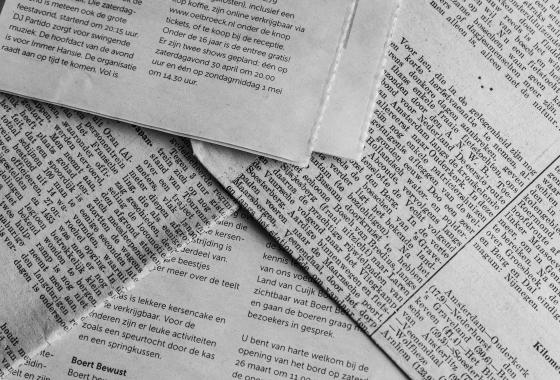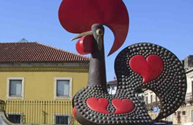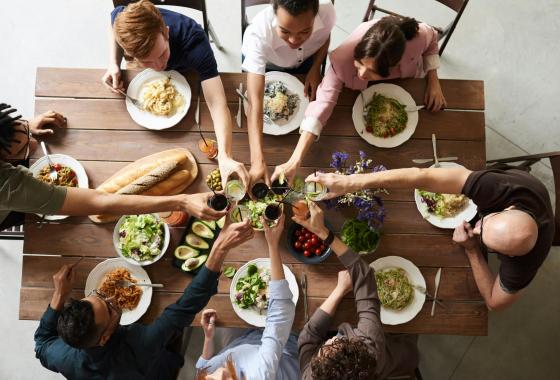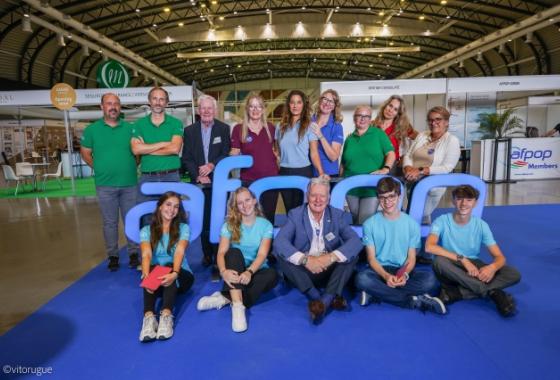
FS06E - Recycling
Category : Fact Sheets
FS06E - Recycling
Recycling is a topic that divides opinions. Not necessarily about the need to do it, but certainly about what happens to the things we recycle. Many people believe that the recycling bins are all emptied into one big truck and all go into the landfill sites. In Portugal we know that this is not the case.
It is estimated by ALGAR that at least 50% of the contents of their landfill sites could have been recycled. With more than 3.5 million tonnes of waste in just one landfill, that means 1.75 million tonnes of that could have been recycled, saving space and resources.
RSU – non-specific waste
When rubbish is placed in the general RSU bins, this is collected and dumped directly into the landfill site, as it is not possible at this time to sort through the amount of rubbish that is disposed of in this way. This is deposited in layers, with a layer of dirt on top of each layer of waste and then covered with tarpaulin, before another layer of waste is added, then a layer of dirt etc. Obviously, this means that everything in that landfill will then be there until degrades, which in some instances as we know will be never. By placing recyclable items in the correct bins therefore, we can help to reduce the number of landfills required and the rubbish that will be left in the holes when all the degradable items have perished.
The contents of recycling bins are dealt with in their individual stations at the recycling centre and are not just collected and thrown in with everything else. Once they are sorted, they are then forwarded on to the companies that will use them. The bins for plastics/packaging (yellow), glass (green) and card/paper (blue) are sorted at the depot, which in the case of packaging and plastics often requires the manual sorting first of the contents into their various materials.
Plastics/packaging – YELLOW bins
As we know not all plastics are the same and the plastic used for water bottles (P.E.T), differs from plastics used for wrappings or food packaging. Unfortunately, as these plastics are usually placed into one larger plastic bag and dumped in the bin as a parcel, these need to be opened and sorted manually at the depot. A simple time saving option is to tear open the plastic bag and empty the contents out in the bin, thereby allowing for more of the waste to be sorted automatically by the machinery at the depot.
it is also advisable to ensure that all food stuffs and remains in milk cartons are emptied out of the containers before being placed in the bins and to ensure that needles and other hazardous objects are not thrown in with the plastics and packaging. As the plastics are often sorted by hand this can obviously be dangerous for the people doing the sorting and care should be taken before dumping such things in the bins. Whilst it is not necessary to wash out milk cartons before disposing of them, it is better to empty them completely before leaving them in the bins, mainly to help reduce the dreadful smell at the recycling centre when they are left in the sun for long periods.
Tins and polystyrene should be placed in the yellow bins.
Any cartons which have oil or other chemicals in them or contained medicines must not be placed in the plastics bins but disposed of correctly. More on this at the end of the Fact Sheet.
Glass – GREEN bins
In some countries glass is sorted by colour but this is not the case in Portugal, where all glass is dealt with in the same bin. Quite often bottles are thrown away in plastic bags and it is better if they are emptied out of the bag and into the bin.
Tins and other metals should not be placed in the green bins.
Paper/Card – BLUE bins
Perhaps the most common error with the paper and card is the disposal of boxes which contained electrical equipment or furniture and have polystyrene or other materials, wires, strapping etc, in the packaging. These must be separated and the paper/card only placed in the blue bins. Polystyrene should be placed in the yellow bins.
IMPORTANT: Paper and cardboard contaminated with organic matter, for example pizza boxes with leftover food in them, must not be placed in the ecopoints.
Where to take other items that can’t go in recycling bins.
Oils/paints: It is a type of waste that, due to its characteristics (liquid or hazardous), cannot enter the recycling facilities because they are a landfill for solid and non-hazardous waste. You should contact the CCDR (Coordination and Development Committee) of the Algarve www.ccdr-alg.pt to ask for the best location to leave this type of waste.
Medicine packaging: Medicine packaging should be returned to the pharmacy or medical centre. They may not want to take it, but according to ALGAR are obliged to do so.
White goods/appliances: They can also be delivered at zero cost in Algar facilities, provided that the equipment comes with all the components.
Batteries, large and small: There are recycling points in many shopping centres and DIY stores to place old batteries, but vehicle batteries should be taken to either a garage or service centre to be disposed of. Batteries can be delivered to ALgar facilities at zero cost, providing they are separated from the general waste and are not leaking.
Garden waste: The first thing to do is contact your local Câmara to ask who provides this type of service in your area, as this work is not done by the Algar. However, if the municipality does not perform this service, residents may take garden waste to Algar facilities and they may enter as green waste, but there will be a cost for that service.
What cannot be placed in these ecopoints is all material that is not packaging (ie, has not wrapped anything, regardless of whether it is material, plastic, metal or paper).
For example, the following items should not be placed in the recycling bins:
Glass
Glass dishes
Glass windows
Ceramics
Plastic and metal packaging
Metal cutlery
Plastic which are NOT packaging, such as vehicle parts, beach chairs, toys, etc
Other household items, such as furniture, curtains etc
These kinds of waste fall into the category of extraordinary or bulky waste, which can be taken to Algar facilities but there will be a cost for their treatment
The attached documents give additional information about the items allowed in each container.
www.algar.com.pt – from the menu choose ‘Cliente’ and then ‘ENTREGA DE RESÍDUOS´ to see the list of recycling points in the Algarve.
Outside the Algarve the main recycling companies are:
CCDR Alentejo: http://www.ccdr-a.gov.pt
CCDR Centro: http://www.ccdrc.pt
CCDR Norte: http://www.ccdr-n.pt (available in English, Spanish and French)





